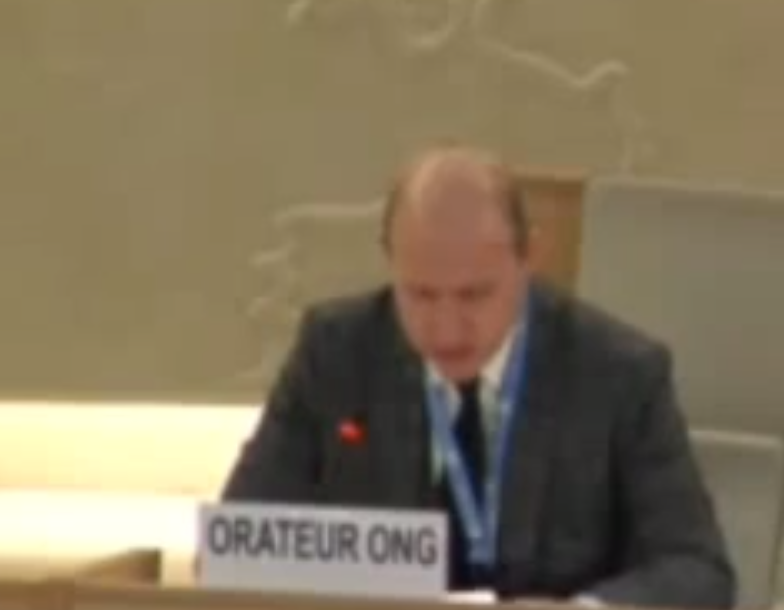On March 24, ADHRB associate Michael Payne delivered an oral intervention at the 28th session of the United Nations Human Rights Council in Geneva under Item 9 on Shia Discrimination in Bahrain. Please continue reading for full remarks or click here to download a PDF.
الرجاء الضغط هنا لقراءة هذه الرسالة باللغة العربي
Mr. President,
With consideration of Section II of the Durban Declaration, Alsalam Foundation, together with Americans for Democracy & Human Rights in Bahrain, the Bahrain Institute for Rights and Democracy and the Bahrain Center for Human Rights, would like to raise our concern regarding certain States’ lack of protections for vulnerable or marginalized religious groups. We are concerned that such failed protections, and indeed systematic discrimination against religious groups, directly undermine the aims and objectives of the DDPA.
For example, in Bahrain, the government continues to act to restrict the rights of Bahrain’s Shi’a population. The government also continues to target prominent religious leaders with home raids and defamation, arbitrary prison sentences or deportation, as in the cases of Sheikh Isa Qassim, Sheikh Mohamed Habib al-Miqdad or Sheikh Hussain Najati. Government security forces continue to single out Shi’a villages and protesters for acts of violence and the excessive use of force, enforced disappearance, arbitrary detention, and torture. Bahrain’s discrimination against the Shi’a additionally extends to the political sphere, where the government has begun legal proceedings to disbanding the country’s largest Shi’a opposition political society and has leveled charges against the groups’ leading figures, such as Sheikh Ali Salman. Finally, despite government commitmentsto rebuild 37 Shi’a places of worship destroyed in 2011, the sites’ reconstruction has only proceeded at the expense and initiative of local Shi’a communities.
Another example of religious discrimination targeting Shi’a comes from the Kingdom of Saudi Arabia. There, Saudi security forces shot and arrested the Eastern Province’s leading Shi’a cleric and human rights activist, Sheikh Nimr al-Nimr, while he was leading a peaceful protest in the city of al-Awamiyah. After more than two years in prison, Sheikh Nimr was sentenced to death for allegedly conspiring with foreign powers to bring about the fall of the Saudi government—an accusation which has not been supported with credible evidence.
These examples illustrate certain States’ continued disregard for the principles and objectives of the DDPA. We therefore call on States to take urgent steps towards providing effective and universal protections for all religious or ethnic groups, in line with the aims of this Declaration and Program of Action.
Thank you.





